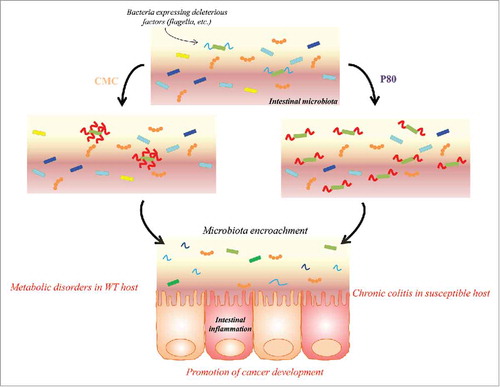Figures & data
Figure 1. Dietary emulsifiers directly impact the intestinal microbiota, increasing their pro-inflammatory potential. Carboxymethylcellulose (CMC) is directly impacting bacterial gene expression, leading to an increase expression of molecules with pro-inflammatory potential. Polysorbate 80 (P80) is altering microbiota composition, favoring the expansion of bacteria with pro-inflammatory potential. In both cases, such altered microbiotas are able to penetrate the normally sterile mucus layer, leading to intestinal inflammation that manifest as chronic inflammatory disorders in genetically susceptible individuals or insulin resistance and associated metabolic syndrome in unimpaired host. Moreover, altered microbiota following emulsifier exposure predispose to colon cancer development.

